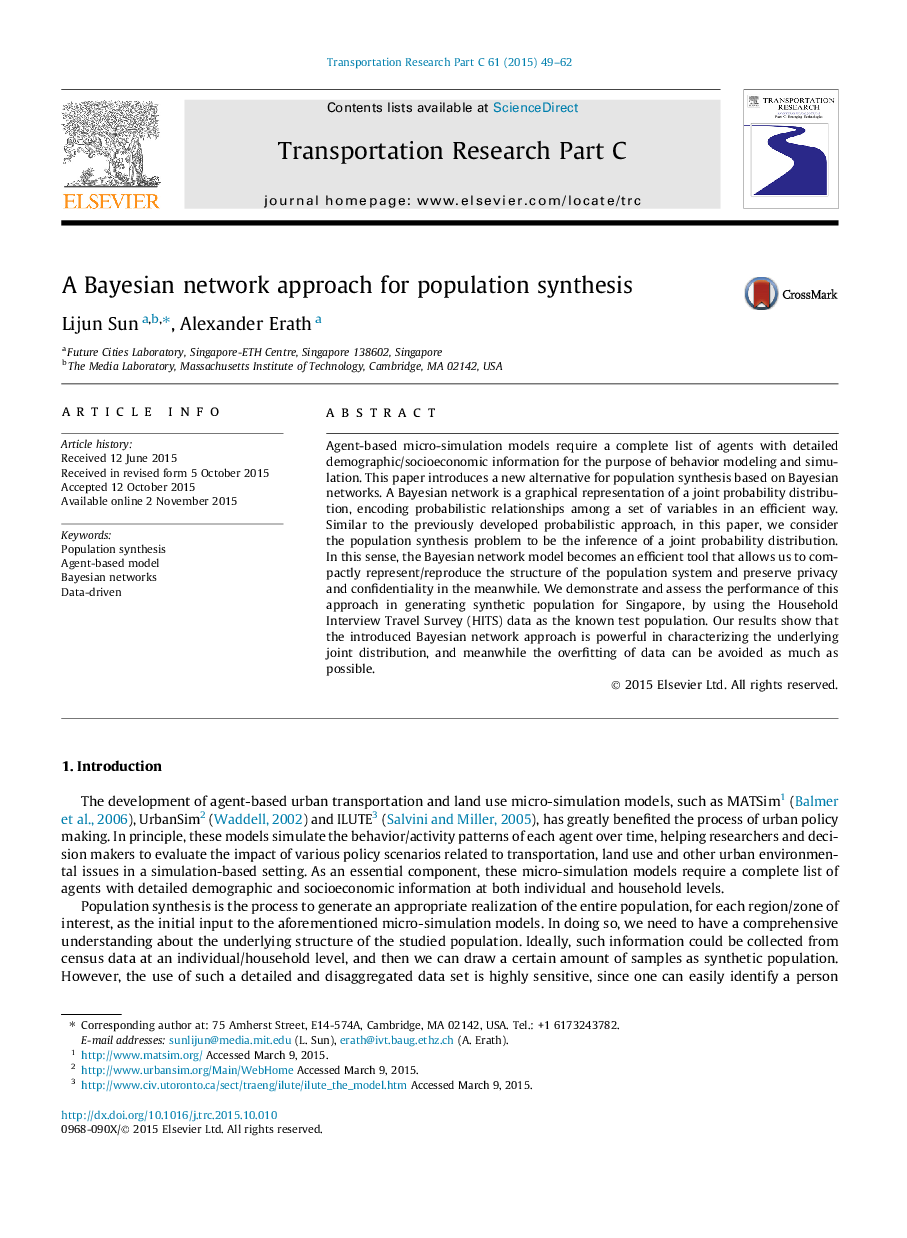| Article ID | Journal | Published Year | Pages | File Type |
|---|---|---|---|---|
| 526354 | Transportation Research Part C: Emerging Technologies | 2015 | 14 Pages |
•We introduce a Bayesian network approach for population synthesis.•The model can reproduce the structure of population system efficiently.•The model also allows us to preserve privacy and confidentiality in the data.•We conduct performance comparison with other models using the HITS survey data.
Agent-based micro-simulation models require a complete list of agents with detailed demographic/socioeconomic information for the purpose of behavior modeling and simulation. This paper introduces a new alternative for population synthesis based on Bayesian networks. A Bayesian network is a graphical representation of a joint probability distribution, encoding probabilistic relationships among a set of variables in an efficient way. Similar to the previously developed probabilistic approach, in this paper, we consider the population synthesis problem to be the inference of a joint probability distribution. In this sense, the Bayesian network model becomes an efficient tool that allows us to compactly represent/reproduce the structure of the population system and preserve privacy and confidentiality in the meanwhile. We demonstrate and assess the performance of this approach in generating synthetic population for Singapore, by using the Household Interview Travel Survey (HITS) data as the known test population. Our results show that the introduced Bayesian network approach is powerful in characterizing the underlying joint distribution, and meanwhile the overfitting of data can be avoided as much as possible.
